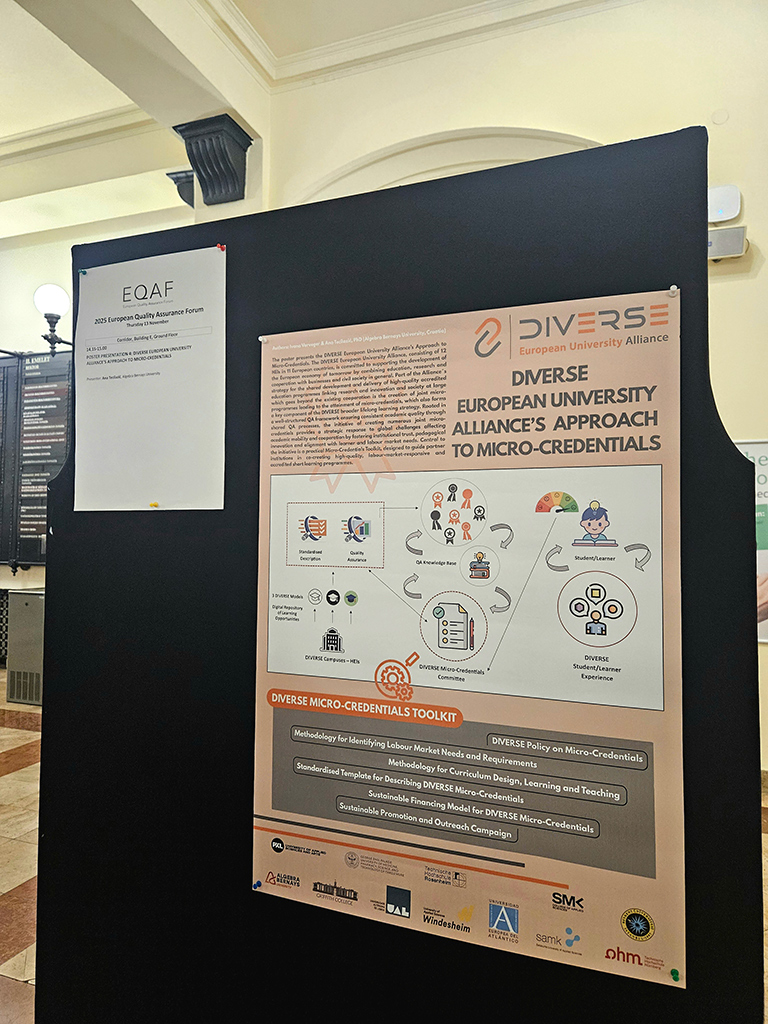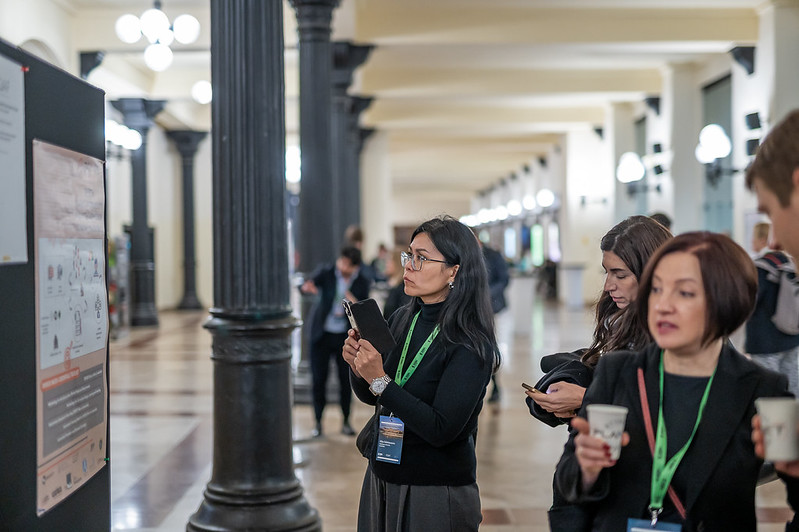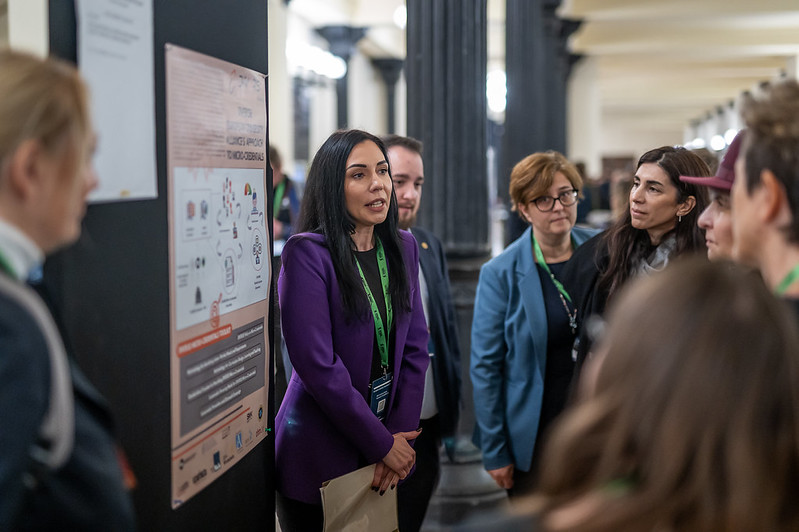Representatives of Algebra Bernays University, Ivana Verveger and Ana Tecilazić, PhD, took part in the poster session of the European Quality Assurance Forum (EQAF) 2025 in Budapest, where they presented the DIVERSE European University Alliance’s comprehensive approach to micro-credentials. The event gathered experts and practitioners from across Europe and beyond, providing an excellent platform to showcase the Alliance’s innovative work and engage with the wider quality assurance community.
Micro-Credentials as a Strategic Priority
As part of its mission to support Europe’s future economy through venture science, the DIVERSE European University Alliance is developing joint micro-programmes that lead to the attainment of micro-credentials. These programmes connect education, research, innovation and societal needs, while promoting lifelong learning and strengthening cooperation across 11 countries and 12 partner institutions, one of which is Algebra Bernays University.
A Shared System for Developing Micro-Programmes
According to the Alliance´s approach to micro-credentials, DIVERSE partner institutions are developing joint micro-programmes that are part of a Digital Repository of Learning Opportunities, using three programme models:
- Single Micro-Credentials Model: one partner institution develops, accredits and delivers the programme.
- Validated Micro-Credentials Model: one partner institution develops and accredits the programme, others adapt and deliver it locally.
- Joint Micro-Credentials Model: several partner institutions jointly design and deliver a shared programme.
All micro-programmes must follow a standardised description format and a shared quality assurance framework covering development, approval, delivery, certification and mutual recognition. The process is overseen by the DIVERSE Micro-Credentials Committee, ensuring consistent quality and alignment with agreed principles.
The DIVERSE Course Catalogue
Once approved, micro-programmes are listed in the DIVERSE Course Catalogue, which serves as the central reference point for all micro-credential learning opportunities across the Alliance. Programmes in the Catalogue are accessible to all DIVERSE students and learners and fully portable between partner institutions, ensuring automatic recognition in terms of achieved learning outcomes and ECTS credits in line with the learning pathways defined in each programme description.
Regular updates ensure alignment with emerging labour market needs and societal developments. Insights gathered through these processes contribute to a growing quality assurance knowledge base that strengthens both institutional practices and the work of the Micro-Credentials Committee. Student and learner feedback plays a crucial role, helping refine procedures and enhance the learning experience.
The DIVERSE Micro-Credentials Toolkit
Central to the initiative is the DIVERSE Micro-Credentials Toolkit, a practical resource supporting partner institutions in designing high-quality, labour-market-relevant micro-programmes. The Toolkit currently includes:
- DIVERSE Policy on Micro-Credentials
- Methodology for Identifying Labour Market Needs and Requirements
- Methodology for Curriculum Design, Learning and Teaching
- Standardised Template for Describing DIVERSE Micro-Credentials
- Sustainable Financing Model for DIVERSE Micro-Credentials
- Sustainable Promotion and Outreach Campaign.
These tools help ensure that all micro-programmes meet shared standards and are developed sustainably and coherently across the Alliance.
Strengthening Cooperation and Innovation Across Europe
The DIVERSE European University Alliance´s approach to micro-credentials is built on shared academic standards, mutual trust and a commitment to providing flexible, high-quality learning. Through collaborative development of micro-programmes, the Alliance supports pedagogical innovation and aligns education more closely with labour market demands – strengthening its contribution to the European Higher Education Area.






